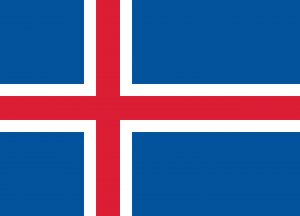Difference between revisions of "Language/Icelandic/Grammar/Personal-Pronouns"
m (Quick edit) |
m (Quick edit) |
||
| Line 1: | Line 1: | ||
<span pgnav> | |||
{| class="wikitable pg_template_nav" | |||
|[[Language/Icelandic/Vocabulary/Introducing-Yourself|◀️ Introducing Yourself — Previous Lesson]] | |||
|[[Language/Icelandic/Grammar/Definite-and-Indefinite-Articles|Next Lesson — Definite and Indefinite Articles ▶️]] | |||
|} | |||
</span> | |||
{{Icelandic-Page-Top}} | {{Icelandic-Page-Top}} | ||
| Line 167: | Line 174: | ||
{{Icelandic-Page-Bottom}} | {{Icelandic-Page-Bottom}} | ||
<span pgnav> | |||
{| class="wikitable pg_template_nav" | |||
|[[Language/Icelandic/Vocabulary/Introducing-Yourself|◀️ Introducing Yourself — Previous Lesson]] | |||
|[[Language/Icelandic/Grammar/Definite-and-Indefinite-Articles|Next Lesson — Definite and Indefinite Articles ▶️]] | |||
|} | |||
</span> | |||
Revision as of 22:38, 2 April 2023
| ◀️ Introducing Yourself — Previous Lesson | Next Lesson — Definite and Indefinite Articles ▶️ |
Icelandic personal pronouns are an integral part of communicating effectively in Icelandic. Learning how to use them correctly will allow you to express yourself more accurately and confidently in conversations. In this lesson, we will cover Icelandic personal pronouns, including subject pronouns, object pronouns, and possessive pronouns.
Icelandic Subject Pronouns
Subject pronouns are used to replace the subject of a sentence. They are equivalent to the English pronouns "I", "you", "he/she/it", "we", and "they".
Here are the Icelandic subject pronouns:
| Icelandic | Pronunciation | English |
|---|---|---|
| Ég | [jek] | I |
| Þú | [θuː] | You (singular) |
| Hann | [haɲː] | He |
| Hún | [huːn] | She |
| Það | [θaːθ] | It |
| Við | [vɪð] | We |
| Þið | [θɪð] | You (plural) |
| Þeir | [θɛir] | They (masculine) |
| Þær | [θaɛr] | They (feminine) |
| Þau | [θœi] | They (neuter) |
Examples
- Ég er góð/ur í íþróttir. – [jek ɛr kouːð yː iθroutir] – I'm good at sports.
- Þú ert falleg/ur. – [θuː ɛr̥t falɛɣ yːr̥] – You're beautiful.
- Hann er hættur/samur. – [haɲː ɛr̥ haitːʏr̥ samʏr̥] – He's brave.
- Hún er dugleg/ur. – [huːn ɛr̥ tʏːklɛɣ yːr̥] – She's diligent.
- Það er erfitt. – [θaːθ ɛr̥ ɛrvɪht] – It's difficult.
- Við erum vinir. – [vɪð ɛr̥ʏm vɪnɪr̥] – We're friends.
- Þið eruð góð í skólunni. – [θɪð ɛr̥ʏð koːð yː skoulʏnɪ] – You're good in school.
- Þeir eru gömul. – [θɛir̥ ɛr̥ʏ ɣœmʏl] – They're old (masculine).
- Þær eru tilbúnar. – [θaɛr̥ ɛr̥ʏ tɪlbunar] – They're ready (feminine).
- Þau eru þreytt. – [θœi ɛr̥ʏ θreitː] – They're tired (neuter).
Icelandic Object Pronouns
Object pronouns are used to replace the object of a sentence. They are equivalent to the English pronouns "me", "you", "him/her/it", "us", and "them".
Here are the Icelandic object pronouns:
| Icelandic | Pronunciation | English |
|---|---|---|
| Mig | [mɪɣ] | Me |
| Þig | [θɪɣ] | You (singular) |
| Hann | [haɲː] | Him |
| Hana | [hanä] | Her |
| Það | [θaːθ] | It |
| Okkur | [ɔ̝hkʏr] | Us |
| Ykkur | [ɪkːʏr] | You (plural) |
| Þá | [θau] | Them (masculine) |
| Þær | [θär̥] | Them (feminine) |
| Þau | [θœi] | Them (neuter) |
Examples
- Ég sé þig. – [jek saɪ θɪɣ] – I see you.
- Hann hjálpar þeim. – [haɲː cauːlpar θɛim̥] – He helps them (masculine).
- Hún elskaði hann. – [huːn ɛlskaðɪ haɲː] – She loved him.
- Við horfum á það. – [vɪð hɔrvʏm̥ auː θaːθ] – We're looking at it.
- Þið segið mér. – [θɪð sɛɣɪð mjeːr̥] – You're telling me.
- Þau elska þér. – [θœi ɛlska θjeːr] – They love you (neuter).
Icelandic Possessive Pronouns
Possessive pronouns are used to show possession. They stand alone and do not modify nouns. They are equivalent to the English pronouns "mine", "yours", "his/hers/its", "ours", and "theirs".
Here are the Icelandic possessive pronouns:
| Icelandic | Pronunciation | English |
|---|---|---|
| Minn/min | [mɪnːn̥] | Mine |
| Þinn/tinn | [θɪnː] | Yours (singular) |
| Hans/hennar/hins | [hans/hɛnːar/hins] | His/hers/its |
| Okkar/vor/vort | [ɔ̝hkar/vɔr/vɔr̥t] | Ours |
| Ykkar/ðar/þiðar | [ɪkːʏr/ðaɾ̥/θɪðar̥] | Yours (plural) |
| Sín/sitt/sín | [siːn/sɪtt/siːn] | Theirs |
Examples
- Ég er með minn hund. – [jek ɛr̥ mɛð mɪnː ˈhʏnt] – I have my dog.
- Þú ert með þinn böskuð. – [θuː ɛr̥t mɛð θɪnː ˈpœskiːð] – You have your hat.
- Hann er með sitt hjól. – [haɲː ɛr̥ mɛð sɪtː hjuːl] – He has his bike.
- Við erum með okkar bækur. – [vɪð ɛr̥ʏm̥ mɛð ɔ̝hkar̥ ˈpjakʏr] – We have our books.
- Þið eruð með ykkar föt. – [θɪð ɛr̥ʏð mɛð ɪkːʏr fœht] – You have your clothes.
- Þau eru með sína hest. – [θœi ɛr̥ʏ mɛð siːna hɛst] – They have their horse.
Congratulations! You have learned about Icelandic personal pronouns, including subject pronouns, object pronouns, and possessive pronouns. Keep practicing and incorporating them into your conversations to improve your Icelandic language skills.
Videos
Personal pronouns in Icelandic - YouTube
Icelandic Grammar: Impersonal Verbs - YouTube
Personal Pronouns in Icelandic [EP.18] - YouTube
Other Lessons
- Verbs
- Possession
- Adverbs
- Definite and Indefinite Articles
- Adverbs Formation
- How to Use Be
- Plurals
- Common Prepositions
- Icelandic Articles
- Nouns
Sources
- Icelandic grammar - Wikipedia
- Icelandic Pronouns - ielanguages.com
- Introduction to pronouns | Icelandic Grammar Reference
| ◀️ Introducing Yourself — Previous Lesson | Next Lesson — Definite and Indefinite Articles ▶️ |
